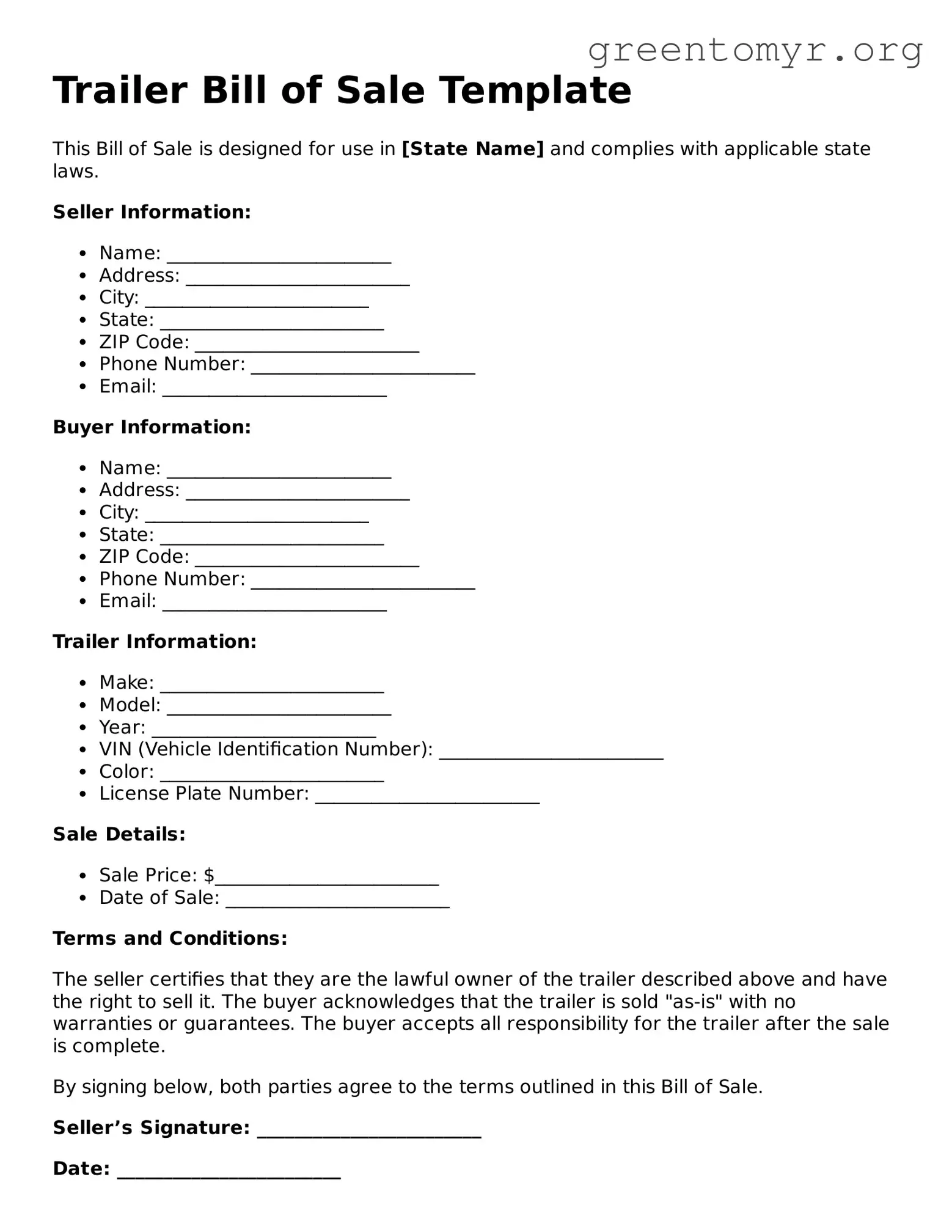Filling out the Trailer Bill of Sale form can be challenging, and even small mistakes can lead to complications in the sale process. One common mistake occurs when buyers and sellers forget to provide complete contact information. Without full names, addresses, and phone numbers, tracing parties involved in the transaction can become difficult should any issues arise in the future.
Another frequent error involves skipping the description of the trailer itself. It's crucial to include details such as the make, model, year, and vehicle identification number (VIN). Omitting this information can create confusion regarding ownership and may lead to disputes later on. Buyers want clarity, and accurate details protect everyone involved.
Failing to sign the form is another major pitfall. Both the seller and buyer must provide signatures to validate the transaction. It seems simple, but forgetting to sign can render the document ineffective. Always double-check to make sure all necessary signatures are present before submitting the form.
Inaccurate or incomplete payment information is yet another mistake. It’s essential to specify the total sale price and any payment terms clearly. If the payment method, such as cash, check, or financing, is not indicated, misunderstandings may arise. Financial details safeguard both parties and ensure a transparent process.
People often neglect to indicate whether the trailer comes with any warranties or disclosures. If there are known issues or if the trailer is sold "as-is," this must be noted explicitly. This protects the seller from potential claims in the future and ensures that the buyer is fully informed about the condition of the trailer.
Not keeping copies of the completed form is a common oversight. After filling out the Trailer Bill of Sale, both parties should retain a copy for their records. This reference will be handy if any disputes arise or additional verification is needed about the transaction.
Lastly, some individuals rush through the process, leading to hasty mistakes. It’s important to take your time when filling out the form. Review all the information carefully before submitting it. Rushing can result in simple errors that might cause significant issues later on.
